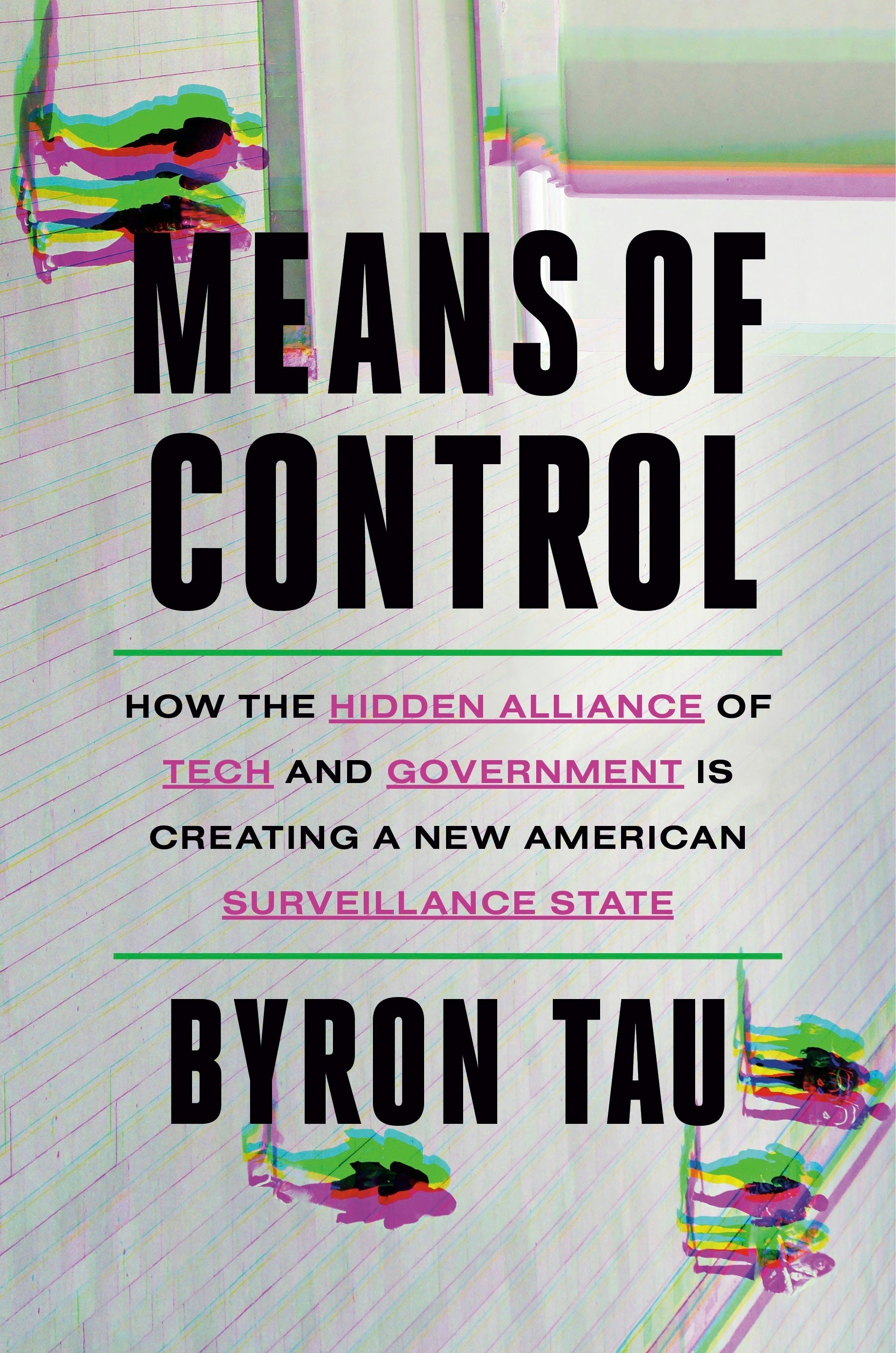Book Review: 'Means of Control' charts the disturbing rise of a secretive US surveillance regime
In the book “Means of Control,” former Wall Street Journal reporter Byron Taul exposes in disturbing detail how private Beltway contractors have grown a secretive surveillance regime, AP technology reporter Frank Bajak writes

Your support helps us to tell the story
From reproductive rights to climate change to Big Tech, The Independent is on the ground when the story is developing. Whether it's investigating the financials of Elon Musk's pro-Trump PAC or producing our latest documentary, 'The A Word', which shines a light on the American women fighting for reproductive rights, we know how important it is to parse out the facts from the messaging.
At such a critical moment in US history, we need reporters on the ground. Your donation allows us to keep sending journalists to speak to both sides of the story.
The Independent is trusted by Americans across the entire political spectrum. And unlike many other quality news outlets, we choose not to lock Americans out of our reporting and analysis with paywalls. We believe quality journalism should be available to everyone, paid for by those who can afford it.
Your support makes all the difference.In the aftermath of the 9/11 terror attacks, former national security advisor John Poindexter launched Total Information Awareness, intent on preventing future assaults on the homeland by amassing extensive databases on people and their movements.
The Pentagon program had a creepy eye-surveilling-the-globe-from-a-pyramid logo and was roundly rejected by civil libertarians as Orwellian overkill. Adm. Poindexter, an Iran-Contra conspirator, was skewered by late-night talk show hosts and Congressional resistance moved to defund it.
Except TIA wasn't DOA. Not by a longshot.
The data collection that Poindexter envisioned instead went underground, with code names such as “Basketball” and classified budgets. How private Beltway contractors grew what has become a secretive surveillance regime is exposed in disturbing detail by journalist Byron Tau in his first book, “Means of Control.” In the absence of a federal privacy law, the U.S. national security establishment has used commercially available data to craft a creeping panopticon.
As a Wall Street Journal reporter, Tau broke important stories on how the shadowy U.S. data collection and brokering industry has been indirectly — and legally, it seems — eavesdropping on tens of millions of Americans and foreigners in the service of U.S. military, intelligence and homeland security.
“In China, the state wants you to know you’re being watched. In America, the success lies in the secrecy," he writes. "The government does not want you to notice the proliferation of license plate readers. It does not want citizens to understand that mobile phones are a surveillance system... that social media is being eavesdropped on.”
“Means of Control” traces Tau's efforts to cut through thickets of secrecy to show how different kinds of data became available for purchase by the U.S. government post-9/11, how what author Shoshana Zuboff termed “surveillance capitalism” — the vacuuming up of personal data by Facebook, Google and others to feed the online ad market — fed a thriving, under-the-radar bazaar of businesses selling data on people's habits, predilections and, importantly for soldiers and spies, physical movements.
“I've spent years trying to unravel this world — a funhouse of mirrors draped in nondisclosure agreements, corporate trade secrets, needlessly classified contracts, misleading denials, and in some cases outright lies,” he writes.
Unlike Edward Snowden, the former National Security Agency worker whose 2013 data dump sounded piercing alarms on U.S. government surveillance, Tau is an outsider. So he is often stymied. But he is not alone in this work, and generously credits his journalist competitors.
When Tau does get a breakthrough, it is often on surveillance partnerships that help foil a bad guy — like the U.S. border drug tunnel Department of Homeland Security agents uncover in 2018 with cellphone geolocation data obtained from a company called Venntel.
To gather intelligence, firms working closely with U.S. national security operators have embedded data-collecting software in smartphone apps — such as Muslim prayer apps popular in the Middle East. The app owners may or may not be aware of the software modules' surveillance mission, though there's a reason they're getting paid to include the data-gathering SDKs (software development kits).
Some of these tools have been developed with CIA funding and some, like VISR (Virtual Intelligence, Surveillance and Reconnaissance), have been widely shared inside U.S. intelligence and among U.S. military special operators, Tau writes. The companies involved come and go in the sort of musical chair game we've come expect in U.S. national security contracting.
Which hasn't prevented some from being outed by privacy warriors led by Sen. Ron Wyden of Oregon and, now, the Biden administration's activist Federal Trade Commission.
Take X-Mode, one firm Tau examines.
In 2021, X-Mode was found to have been selling access to location data to the U.S. military. In January, the FTC banned X-Mode and its successor, Outlogic, from sharing or selling data on cellphone users’ location without their explicit consent. It expressed concern such data could be used to track visits to places like abortion clinics, places of worship and domestic abuse shelters.
Near the end of the helpfully annotated 291-page book, Tau offers a chapter on how to protect yourself from digital tracking. There are privacy/convenience tradeoffs. But is complete erasure truly possible? He asks Michael Bazzell, an expert in the field.
“Of course,” Bazzell says. “Will you enjoy that life? Maybe not.”
—-
More AP book reviews: https://apnews.com/hub/book-reviews